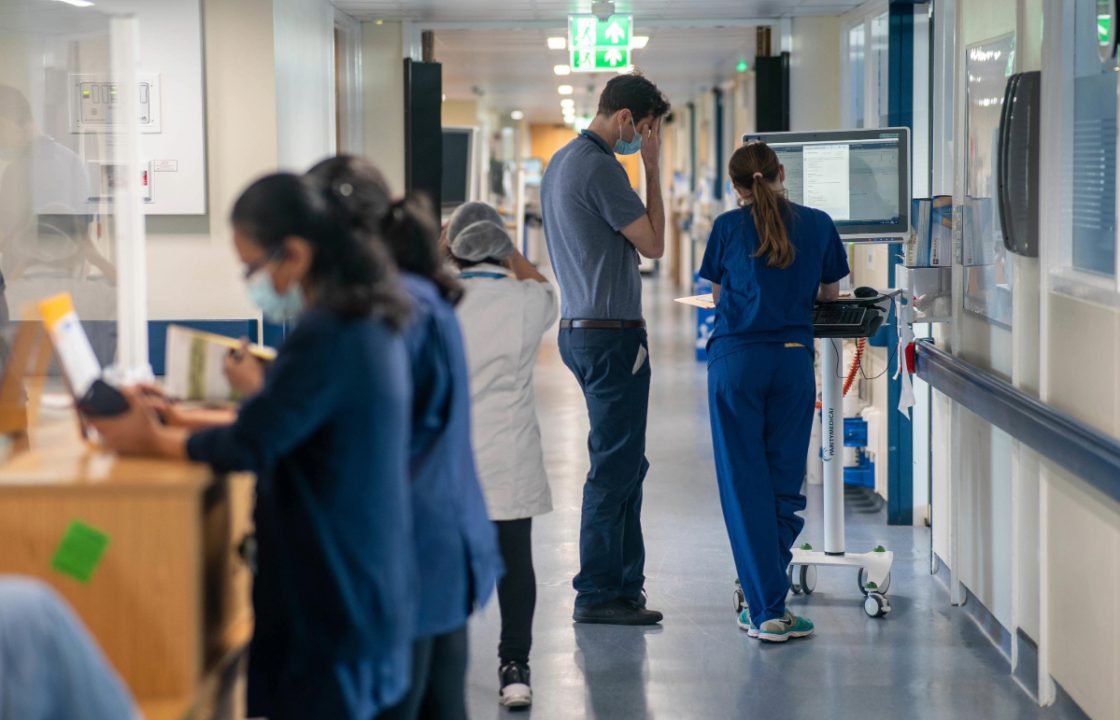The NHS in Scotland is treating fewer patients than it did pre-Covid, despite health spending and staffing levels rising, a new report has found.
Research by the Institute for Fiscal Studies (IFS) found that measured hospital activity “fell rapidly” during the pandemic and has “still failed to recover fully”.
The think tank described this fall in NHS hospital productivity as being “particularly concerning given the challenging fiscal situation the Scottish Government continues to face”.
A new report looking at health and the Scottish budget said the number of patients on the NHS elective waiting list in Scotland had grown by 87% since the start of the pandemic.
Meanwhile, the number of patients who wait 18 weeks or less for hospital treatment, and the number of those in accident and emergency who are dealt with inside the four-hour target time has “fallen substantially since the start of the pandemic”.
The report warned: “Until the NHS can deliver more hospital activity than pre-pandemic, it is likely waiting lists and waiting times will continue to rise.”
IFS research economist Max Warner said: “The Scottish NHS is still feeling the effects of the Covid-19 pandemic.
“Despite higher funding and more staff than in 2019, hospital activity remains substantially below pre-pandemic levels.”
Mr Warner, one of the authors of the new report, continued: “The fall in measured hospital productivity is similar to what we have documented for England, but the reduction in activity is larger in Scotland because funding and staffing have grown by less than in England.”
He went on to warn: “Without a substantial boost to hospital productivity, there is a risk that even additional funding and staffing will not bring the Scottish NHS back to pre-pandemic performance.”
He spoke out as the report said there was “clear evidence that the NHS in Scotland, as in the rest of the UK, is struggling to recover from the Covid-19 pandemic, despite record levels of spending and staffing”.
It found that over April to June last year “the Scottish NHS treated 8% fewer elective day-case patients, handled 8% fewer emergency admissions and 8% fewer outpatient appointments and treated 21% fewer elective inpatient admissions than pre-pandemic”.
However, staffing levels had “increased substantially” since the start of the pandemic, it said, saying by July to September 2023 NHS Scotland employed 11% more consultants, 16% more junior doctors and 8% more nurses than it did prior to Covid.
Spending on health meanwhile was said to have “grown considerably”, going from £1,659 per person in 1999-2000, when the Scottish Parliament was established, to £3,073 per person in 2022-23.
The first 10 years of devolution saw health spending increase “rapidly” and while rises slowed from an average of 5% a year over this period, to 0.4% over the following decade, they then “rose rapidly during the Covid-19 pandemic”.
While the report added this had fallen since then, it noted: “Spending per person remained 10% higher in 2022–23 than in 2019–20.”
It went on to state that the “apparent fall in hospital productivity in Scotland is similar in magnitude to that observed in the English NHS” – but the report noted England had “increased staff by more than Scotland, so the recovery in hospital activity has been much greater”.
And while the Scottish Government plans to increase the health and social care workforce by 1% over the five years from 2022, the IFS noted that NHS England is planning for a 20% to 21% increase in staff over the same period.
Labour health spokesperson Jackie Baillie said: “This damning report lays bare the SNP’s woeful failure to deliver the NHS recovery Scotland desperately needs.
“With waiting lists at a record high and almost one in six Scots still waiting for appointments and treatment there is an urgent need to ramp up activity, but hospitals simply cannot cope.
“Services are at breaking point, staff are exhausted and demoralised, and patients are being put at risk.”
Meanwhile, Scottish Liberal Democrat leader Alex Cole-Hamilton said: “This report is particularly damning when it notes that England has big increases in staffing planned but Scotland has not.”
Adding there were “yawning gaps within the nursing workforce”, he insisted there “needs to be a renewed focus on recruiting and retaining people”.
Colin Poolman, director of the Royal College of Nursing (RCN) Scotland, said that “nursing staff across Scotland are under pressure, under-staffed and many are at breaking point”.
He added that nurses “want to see the Scottish Government get to grips with the workforce crisis that is facing our health and social care services and focus on delivering safe and effective care for the people of Scotland”.
A Scottish Government spokesperson said: “We recognise some people are waiting too long and remain committed to reducing waits for planned and emergency care.
“We will continue to work with NHS boards and stakeholders to enhance patient care through redesign and transformation, including alternatives to hospital care where appropriate.
“The draft budget provides increased investment for health and social care, including over half a billion pounds more for frontline NHS boards. However, we know that to make progress we need to not just invest in services but also reform the way they are delivered.”
Follow STV News on WhatsApp
Scan the QR code on your mobile device for all the latest news from around the country




























